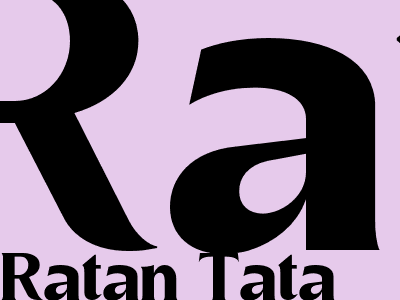Ratan Tata's Life: A Journey of Success and Philanthropy
From humble beginnings to the forefront of Indian industry
Ratan Tata, born on December 28, 1937, in Mumbai, India, embarked on a remarkable journey that would profoundly impact the Indian industrial landscape. The eldest son of Naval Tata, a renowned lawyer, and Sooni Tata, Ratan's formative years were shaped by the values of hard work, integrity, and philanthropy.
After graduating from Cornell University with a degree in architecture and structural engineering, Ratan returned to India to join the family business, the Tata Group, in 1962. Starting as a trainee, he gradually rose through the ranks, gaining valuable experience in various sectors, including textiles, steel, and automobiles.
Ratan's leadership qualities became evident early on. In 1981, he took over as chairman of Tata Industries, the holding company of the Tata Group. Under his stewardship, the group underwent a major transformation, diversifying into new areas such as telecommunications, information technology, and services.
Tata's legacy: Shaping modern India
Tata Steel: A global giant
Under Ratan Tata's leadership, Tata Steel emerged as a global steel producer, with operations in 26 countries. The company's acquisition of Corus Group in 2007 marked a significant milestone in its international expansion.
TCS: A tech powerhouse
Tata Consultancy Services (TCS) became a global leader in information technology services under Ratan Tata's guidance. The company's focus on innovation and customer satisfaction propelled its growth, making it one of the most respected tech companies in the world.
Tata Motors: A symbol of Indian engineering
Ratan Tata played a pivotal role in the development of Tata Motors, India's largest automobile manufacturer. The company's launch of the Tata Nano, the world's most affordable car, demonstrated its commitment to providing mobility solutions for all.
Philanthropy and social responsibility
Beyond his business achievements, Ratan Tata is widely recognized for his philanthropy and social responsibility initiatives. He established the Tata Trusts, one of India's largest philanthropic organizations, which supports a wide range of causes, including education, healthcare, and rural development.
Tata's belief in giving back to society is deeply ingrained in the Tata Group's culture. The group allocates a significant portion of its profits to charitable causes, making it a role model for responsible corporate citizenship.
Recognition and accolades
Ratan Tata's exceptional leadership and contributions have earned him numerous accolades and awards. He has received honorary doctorates from several universities, including the University of Cambridge and the University of Oxford.
In 2008, Ratan Tata was awarded the Padma Vibhushan, India's second-highest civilian honor, for his contributions to industry and social welfare. He continues to be an inspiration to business leaders and philanthropists worldwide.
Conclusion
Ratan Tata's life and legacy is a testament to the power of hard work, innovation, and philanthropy. His leadership transformed the Tata Group into a global conglomerate and played a significant role in shaping modern India. His commitment to social responsibility and giving back to society has left an enduring impact, making him one of the most respected business leaders of all time.

Komentar